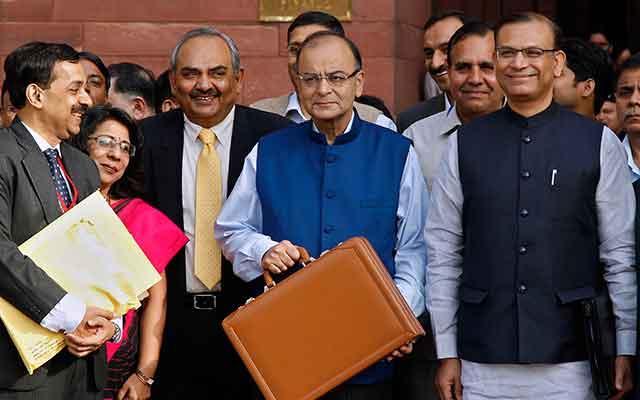The budget session of parliament will begin on February 23 and last until May 13, the government said on Thursday.
The railway budget will be presented on February 25, the economic survey a day later and the general budget for 2016-17 on February 29.
Parliament will go for recess from March 17 till April 24 to let standing committees discuss the budget proposals.
The details of the budget session were finalised at a meeting of the Cabinet Committee on Parliamentary Affairs, a government statement said. The session will have a total of 31 sittings spread over 81 days.
Unlike 2011, when the budget session was halted for state elections, the central government has decided that the session this year will continue uninterrupted. Kerala, Tamil Nadu, Puducherry, West Bengal and Assam go to election this year.
M Venkaiah Naidu, minister of parliamentary affairs, said the government favoured a normal and full-length session with sufficient recess in between to enable the work of the standing committees.
The budget will be closely watched given the decisions on implementation of the seventh pay commission that suggested a wage hike for central government employees as well as fiscal constraints. The government will also be under pressure as Reserve Bank of India governor Raghuram Rajan has said further monetary easing depends on reform measures in the budget. The central bank has cut interest rates by 125 basis points over the past year and now wants the government to take fiscal steps to boost growth.
While the government is widely expected to achieve this year’s goal of keeping the fiscal deficit at 3.9 per cent of gross domestic product, it may ease the target for next year. Such a decision, however, will lend a severe blow to the government’s credibility.
GST, productivity and protests
A constitutional amendment bill to introduce the Goods and Services Tax (GST) will be one of the most important things to watch out for during the budget session.
However, protests by opposition parties will be a headache for the government as it looks to pass not just the GST bill but also the bankruptcy code and introduce a bill to reform labour laws. The Narendra Modi-led government was unable to pass the GST bill and bankruptcy code in the winter session as it doesn’t have a majority in the Rajya Sabha, the upper house of parliament.
The last two sessions were a complete washout for the government due to protests from the opposition parties including the Congress party. The opposition parties will have some fresh arsenal this time as it may raise the issue of the dissolution of the Arunachal Pradesh assembly, among other topics, in parliament.
With the opposition still unwilling to relent, the government may not be able to achieve as much as it did in the last budget session.
Data collected by PRS Legislative Research, an organisation that tracks parliament, suggests that the budget session last year was the most productive in 15 years. It said that the Lok Sabha, the lower year, worked for 123 per cent of its scheduled time while the Rajya Sabha’s productivity was at 101 per cent.
Productivity has certainly dipped since then with the Lok Sabha working for 48 per cent of its scheduled time and Rajya Sabha 9 per cent during the monsoon session and 98 per cent and 50 per cent, respectively, during the winter session.







